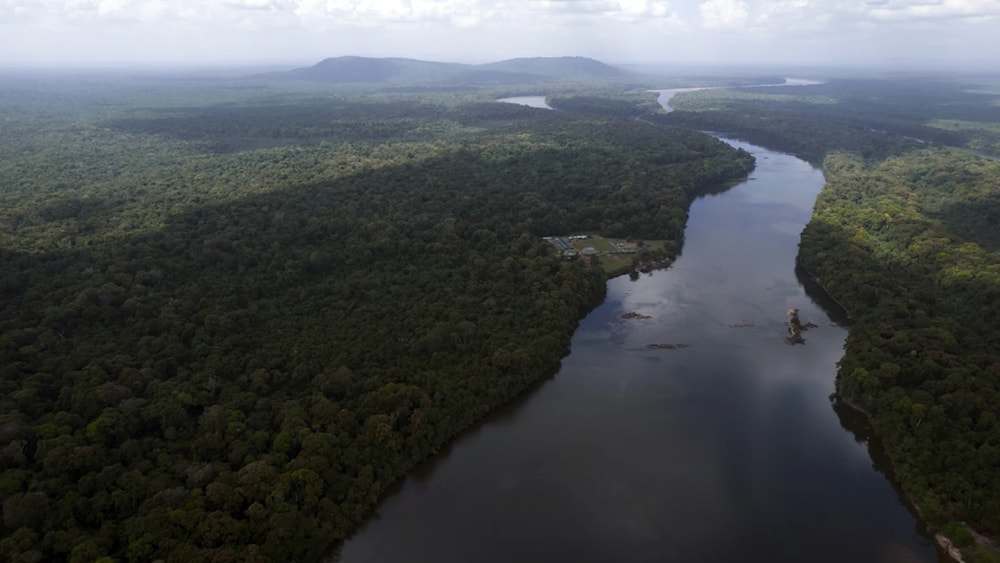Caracas issues warning over Essequibo amid ExxonMobil's drilling plans
This comes after US oil giant ExxonMobil announced plans to drill two exploratory wells off the coast of Essequibo earlier in the week.
-

The Essequibo river flows through Kurupukari crossing, Nov. 19 2023. (AP)
Venezuelan Defense Minister Vladimir Padrino warned on Thursday that any actions in the disputed water off neighboring Guyana will be met with "a proportional, forceful, and lawful response" after US oil giant ExxonMobil announced earlier this week that it plans to drill two exploratory wells off the coast of Essequibo.
This Essequibo area is subject to dispute with Guyana, a neighboring nation that, since 2015, opted to terminate diplomatic discussions and align with US interests against Venezuela.
Caracas views the decision as a breach of international law by permitting oil exploration and exploitation in the contested region.
"If ExxonMobil has a private security company represented by the Southern Command and a small branch in the government of Guyana, good for them, but in the maritime space that rightfully belongs to Venezuela, they will receive a proportional, forceful, and lawful response! THE ESSEQUIBO IS OURS!," Defense Minister Vladimir Padrino wrote in a post on X.
Si la ExxonMobil cuenta con una compañía de seguridad privada representada por el Comando Sur y una pequeña sucursal en el gobierno de Guyana, bien por ellos, pero en el espacio marítimo que por derecho es de Venezuela ¡Recibirán una respuesta proporcional, contundente y apegada… https://t.co/FjJzqFOr1K
— Vladimir Padrino L. (@vladimirpadrino) February 7, 2024
ExxonMobil uncovered the expansive crude reserves in 2015. On Tuesday, the company announced its intention to drill two wells of the coast of Essequibo this year.
Read more: Guyana: A crushing victory of the Venezuelan people
In December, Venezuelan President Nicolas Maduro initiated a non-binding referendum, which saw 95% of the population's approval for the establishment of a Venezuelan province in Essequibo. Maduro said that the vote effectively reflected the people's determination against what he perceived as Exxon Mobil's influence on Guyana's foreign policy.
Tensions escalated when the UK dispatched a warship to the area, prompting Caracas to mobilize 5,600 troops in military exercises near the border.
"Venezuela will not stand idle in the face of any threat, no matter where it comes from. We do not accept provocations. Venezuela has the right to defend its integrity," Maduro wrote in a post on X in late December.
However, tensions eased shortly after a meeting between Guyana and Venezuela's foreign ministers in Brazil in January. An earlier meeting between the leaders of both countries concluded with an agreement that neither country will resort to the use of force.
The border dispute is presently under consideration by the International Court of Justice (ICJ) in The Hague.
On Wednesday, Venezuela's Vice President Delcy Rodriguez slammed ExxonMobil for seeking "to protect its illicit operations in a sea which is pending delimitation, under the war-mongering mantle of the United States in complicity with Guyana."
Read more: US seeks to 'militarize' Venezuela-Guyana disputed territory

 3 Min Read
3 Min Read








